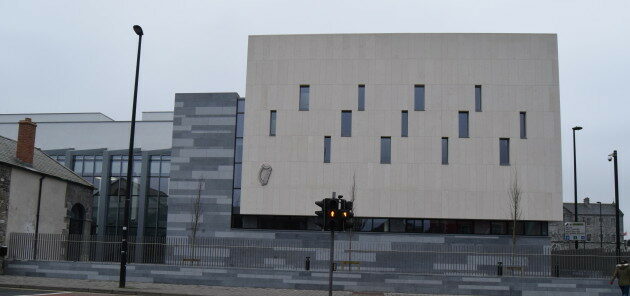GARDA Headquarters is to carefully examine a ruling by a circuit court judge who found that a Clare man was unlawfully arrested at a garda checkpoint, because the arresting garda informed the man he was detaining him to check he actually was who he said he was.
In the first stage of a two-part ruling, Judge Francis Comerford, at Limerick Circuit Civil Court, said he was satisfied that, Anthony O’Donoghue, 36, with an address at St Micheal’s Park, Gort Road, Ennis, Co Clare, had been unlawfully arrested.
Mr O’Donoghue is suing the Garda Commissioner, the Minister for Justice, and the Attorney General, for alleged false imprisonment, damages, aggravated damages due to alleged assault and battery by the application of handcuffs by gardai, trespass to the person, as well as an alleged breach of his constitutional right to bodily integrity.
Judge Comerford, who is to finalise his ruling regarding claimed damages in the case, said: “Gardai cannot arrest people they don’t like the look of, there has to be something more.”
Cian Kelly BL, acting for the Garda Commissioner and the other defendants, told the court, “I would imagine this will be something that will need to be considered by my clients. It’s an area of the law I know the Commissioner will take an interest in, as well as the depth of analysis this court has taken.”
Outlining the facts on Tuesday, the judge said Mr O’Donoghue was arrested after the car he was driving, which was carrying two male passengers, stopped at a routine garda checkpoint outside Rathkeale, Co Limerick, on December 13, 2015.
The arresting officer, Dermot Hallett, Limerick Garda Traffic Corps, Henry Street Garda Station, gave evidence he asked Mr O’Donoghue for his name, date of birth, address, and driving licence.
The plaintiff provided his true name, date of birth, and address, but did not have his driver’s licence.
Garda Hallett asked Mr O’Donghue who the registered owner of the car was, and the plaintiff asked why he wanted to know this. Judge Comerford ruled this was “not a refusal to give information” and did not constitute an arrest.
Garda Hallett said he informed Mr O’Donoghue he was going to arrest him “to establish who you are”.
Judge Comerford said that while Mr O’Donoghue’s “demeanour” had involved “mumbled” responses, he said that this was “not enough” for a garda to invoke a power of arrest, under the legislation.
“On its own, this could lead to arrests on instinct. Demeanour and absence of a driver’s licence are not enough, the arresting garda did not apply the correct arrest test,” said the judge.
Judge Comerford said “there was no mala fide on the part of the arresting garda”, meaning that he believed gardai had acted in good faith throughout their interaction with the plaintiff.
The judge said Garda Hallett, assisted by a garda colleague, had placed Mr O’Donoghue in handcuffs after he allegedly “clenched his fists, and stepped forward” and that “the arresting garda said he was under pressure, and he feared he would be head-butted”.
Judge Comerford said he “rejected” evidence given by the plaintiff that Garda Hallett placed him in handcuffs without informing him why he was arresting him.
Mr O’Donoghue claimed he suffered a fractured right wrist as well as nerve damage to his wrist from the handcuffs being closed too tightly around his wrists.
Gardai gave evidence that while they were transporting Mr O’Donoghue in a patrol car from the checkpoint to Newcastle West Garda Station, they stopped twice along the route to try to remove the handcuffs after the plaintiff complaining.
The first occasion was unsuccessful but they eventually removed the handcuffs when they “put Mr O’Donoghue face down on the bonnet” of the patrol car.
Mr O’Donoghue, who was not present in court to hear the part judgement on Tuesday, claimed the handcuffs were not removed from his wrists until they reached the garda station.
At the station Gardai established that the name and date of birth given to them by the plaintiff were correct, but they did not accept the address he had provided was where he was living, and claimed the plaintiff was living at a halting site in Ennis and had several other addresses.
Mr O’Donoghue was brought to a locum doctor who could not immediately determine any serious injury to his wrists, and he was prescribed painkillers and released without charge.
On January 7 2016 a plaster cast was applied to the planitff’s right wrist for a suspected possible fracture, a type that was “notoriously difficult to diagnose immediately after such an injury”, noted the judge.
Mr O’Donoghue complained of suffering pain in his right wrist for a further 18 months. The court was not been presented with any evidence that the plaintiff had received any further medical treatment in that period of time.
Judge Comerford said he would give a “full judgement” on the claimed damages on April 22.


